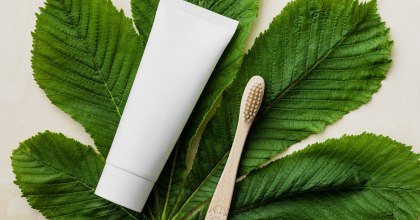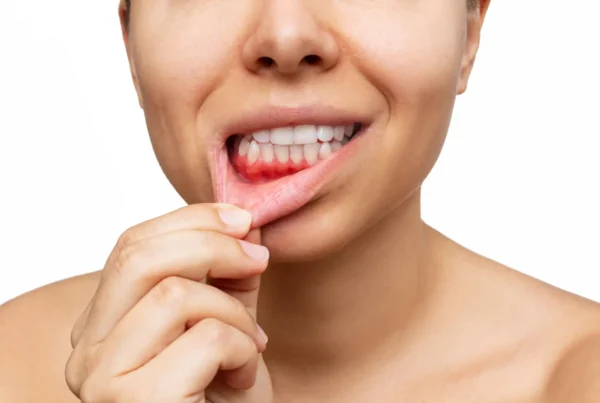- Natural toothpaste – a growing trend in oral care
- What is natural toothpaste and what ingredients does it contain?
- Benefits of natural toothpaste
- Are there any downsides?
- Key active ingredients in natural toothpastes
- Can natural, fluoride-free toothpaste really clean your teeth?
- Top natural toothpastes worth trying
- Where do the ingredients in natural toothpaste come from?
Natural toothpaste – a growing trend in oral care
More and more people are turning to natural toothpaste in search of healthier and more eco-friendly alternatives to conventional dental products. With a growing awareness of ingredient safety and environmental impact, these pastes—free from synthetic additives like parabens, sulfates, and artificial dyes—are becoming increasingly popular.
But the question remains: are natural toothpastes truly healthy and effective? In this article, we’ll explore the benefits and potential drawbacks of using natural toothpaste and how these products affect oral health. We’ll also provide examples of safe, natural options that can offer comprehensive dental care.
What is natural toothpaste and what ingredients does it contain?
Natural toothpastes are oral care products formulated with plant-based, herbal, and mineral ingredients instead of synthetic chemicals found in many traditional products. These formulas are designed to gently but effectively clean teeth, with a reduced risk of irritation or allergic reactions.
Common ingredients include:
- Natural abrasives – such as calcium carbonate or clay, for plaque and stain removal
- Essential oils – like peppermint, eucalyptus, or clove, for antibacterial action and fresh breath
- Natural sweeteners – especially xylitol, which helps neutralize acids and prevent cavities
- Herbal extracts – including chamomile, sage, and aloe vera, which soothe and protect gums
Most natural toothpastes are fluoride-free, and often exclude SLS, artificial colors, and preservatives. This makes them ideal for people with sensitive teeth and gums, or those aiming to reduce their environmental footprint.
Benefits of natural toothpaste
1. Free from harsh chemicals
Natural pastes avoid ingredients that can irritate sensitive tissues, such as sodium lauryl sulfate (SLS), artificial preservatives, and dyes. They’re especially suitable for people with allergies, sensitivity, or skin conditions.
2. Eco-friendly formulas
Many natural brands use biodegradable packaging and source ingredients from sustainable agriculture, making them a greener choice for conscious consumers.
3. Antibacterial properties
Natural ingredients like peppermint oil and coconut oil have proven antibacterial effects. They help reduce bacteria that cause bad breath and gum inflammation.
Are there any downsides?
While there are many benefits, natural toothpaste may not be right for everyone. Here are some potential limitations:
1. Lack of fluoride
Fluoride remains one of the most effective ingredients for preventing tooth decay. If you’re at high risk for cavities, avoiding fluoride may increase your vulnerability to enamel demineralization.
2. Weaker stain and plaque removal
Natural toothpastes often rely on gentler abrasives, which may not remove stubborn plaque or stains as effectively as conventional products. This may lead to tartar buildup over time.
3. Potential allergic reactions
Although rare, even natural ingredients can cause allergic reactions, especially for those with sensitivities. Always check the label and do a patch test if needed.
Key active ingredients in natural toothpastes
Here are some of the most effective natural ingredients found in modern natural toothpaste formulas:
Calcium carbonate
A mild, natural abrasive that removes plaque and surface stains without damaging enamel.
Bentonite clay
Detoxifying and remineralizing, this clay helps draw out toxins and strengthens enamel for better decay resistance.
Xylitol
A natural sweetener with cavity-fighting properties. It reduces acid-producing bacteria, helps remineralize enamel, and is safe for daily use.
Peppermint essential oil
Known for its refreshing flavor and antibacterial action, peppermint oil fights odor-causing bacteria and leaves a long-lasting clean feeling.
Tea tree oil
Offers strong antibacterial and antifungal effects, making it ideal for reducing bacteria linked to gum disease and tooth decay.
Aloe vera
Soothes irritated or inflamed gums, promotes tissue healing, and moisturizes the mouth naturally.
Sage
A powerful antiseptic and anti-inflammatory herb, sage is commonly used in toothpastes to fight gum inflammation and bacterial overgrowth.
Activated charcoal
Used for its whitening and detoxifying properties, charcoal attracts and removes toxins and surface stains. Be cautious if you have weakened enamel, as it can be mildly abrasive.
Chamomile extract
Calms irritated gums and supports tissue regeneration. Ideal for those with sensitive gums or frequent inflammation.
Propolis
A bee-derived ingredient known for its antibacterial and anti-inflammatory effects. It helps fight plaque and supports gum healing.
Can natural, fluoride-free toothpaste really clean your teeth?
When selecting a daily-use toothpaste, it’s important to consider both its ingredient list and your individual oral health needs.
Choose natural pastes with effective ingredients
Look for gentle yet effective cleansers, like calcium carbonate or bentonite clay, and antibacterial agents like xylitol, peppermint oil, or sage.
Should you use fluoride?
Fluoride strengthens enamel and helps prevent cavities. For most people, fluoride toothpaste is a reliable choice. However, if you prefer to avoid fluoride due to allergies or personal preference, select a natural toothpaste with enamel-supportive ingredients like xylitol or hydroxyapatite.
Sensitive gums?
If you’re prone to gum irritation, choose a formula with aloe vera, chamomile, or tea tree oil for added comfort and protection.
Whitening needs?
Opt for natural whitening ingredients like activated charcoal or plant-based enzymes. Avoid overly abrasive pastes if your enamel is thin or damaged.
Top natural toothpastes worth trying
Here are 5 natural, eco-friendly toothpastes that combine effectiveness with gentle care:
- Splat Special Blackwood. Features activated charcoal for whitening and detoxifying effects, and juniper berry extract for breath freshness.
- AloeDent Whitening Aloe Vera. Combines aloe vera and silica to soothe gums and remove surface stains. It’s fluoride-free and ideal for sensitive users.
- Weleda Salt Toothpaste. Uses sea salt and herbal extracts (like sage and myrrh) to stimulate saliva flow, neutralize acids, and strengthen gums.
- Urtekram Mint & Green Tea. A gentle daily option made with mint and green tea extracts. Free from synthetic foaming agents and parabens.
- WOOM Carbon+. Contains activated charcoal for effective stain removal with low abrasivity (RDA 60)—great for daily use and sensitive enamel.
Where do the ingredients in natural toothpaste come from?
Natural toothpaste ingredients are typically derived from plants and minerals—including calcium carbonate, xylitol, essential oils, aloe, sage, and activated charcoal. When choosing a toothpaste, review the label carefully and select a formula tailored to your specific oral needs.
Whether you’re focused on gentle care, whitening, or gum health, there’s a natural toothpaste out there for you.






